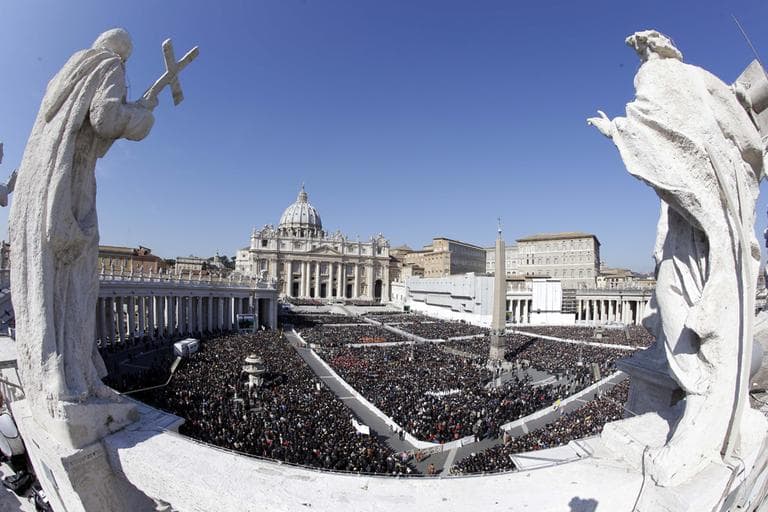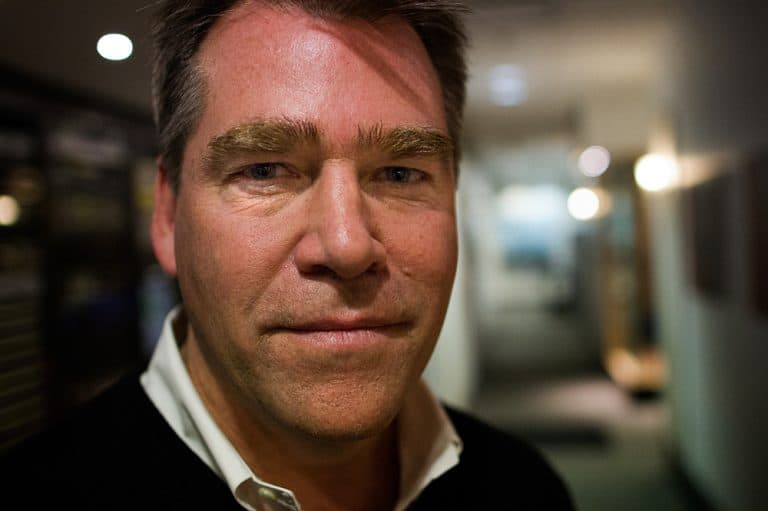Advertisement
What The Next Pope Is Up Against
Resume
Pope Benedict XVI's resignation takes effect tomorrow, and his successor will have to address a number of problems.
There's the ongoing sex abuse scandal, the shortage of priests as the church grows in Africa and the clash between the conservative wing of the church and American nuns, to name a few.
But do the problems also offer an opportunity?
We spoke with Global Post founding editor Charlie Sennott, who covered the last papal transition for The Boston Globe. He's also a Catholic and wrote one of the first books about the Catholic Church sexual abuse scandal.
- What do you see for the future of the Catholic Church? Let us know on Facebook.
____Interview Highlights____
On Pope Benedict XVI resigning and fast-tracking the conclave:

"It's worth asking, why is a pope of such great tradition breaking tradition to resign right now? I think that the weight of the scandal really weighs too heavily on a frail and elderly pope. I think it's a recognition that there are deep problems with governance within the church. The governance by this pope is flawed. If you talk to - even his closest supporters will say this is not a manager, this is a great intellect, this is a great theologian. But as a manager, he's failed."
On the magnitude of challenges facing the Catholic Church:
"The church does amazing work with the poor and the sick around the world. As it faces this dramatic shortage of priests in the West, how will it manage this church that is critical to helping so many and treads a line where its own moral edicts are challenged every day in the battle against AIDS, every day in whether or not they're going to lend assistance to people who are gay, for example, and who face death threats in many parts of the world for being gay. How are they morally going to square themselves with many of these on-the-ground issues - and what moral authority do they hold given the scandals that have racked the church? These are momentous times. It's the church on a precipice of change, I think it is safe to say. And historians who study a lot more closely than I do would say this is a moment that is as significant as the Protestant reformation was."
On what these challenges mean for the future of the Catholic Church:
"I don't see the church breaking up in any big, dramatic way, with a big split that runs down the middle. But I do think it's fair to say that not since the Reformation has the church faced this level of scandal and strain and challenges to its moral authority. And I think this is a moment for the church to go into the future as a global church, or to continue to sort of seek the shadows of this aging hierarchy that has ruled the church for so long. And these are critical questions that Catholic families all over the country are sitting around dinner tables talking about. The Catholic Church is divided. There is a real conservative element that has come out the, really the great papacy of John Paul II - he did have a very historic papacy. This papacy has been really about being a placeholder for the many changes globally that John Paul II put forward. But it's also been, in the last eight years of the Benedict papacy, has been an attempt to really assert a conservative agenda with great power and authority."
- Global Post special report: The Vatican's investigation of American nuns
- BBC: Pope Benedict XVI recalls joy and 'choppy waters'
Guest:
- Charles Sennott, executive editor and co-founder of Global Post. He tweets @CMSennott.
This segment aired on February 27, 2013.